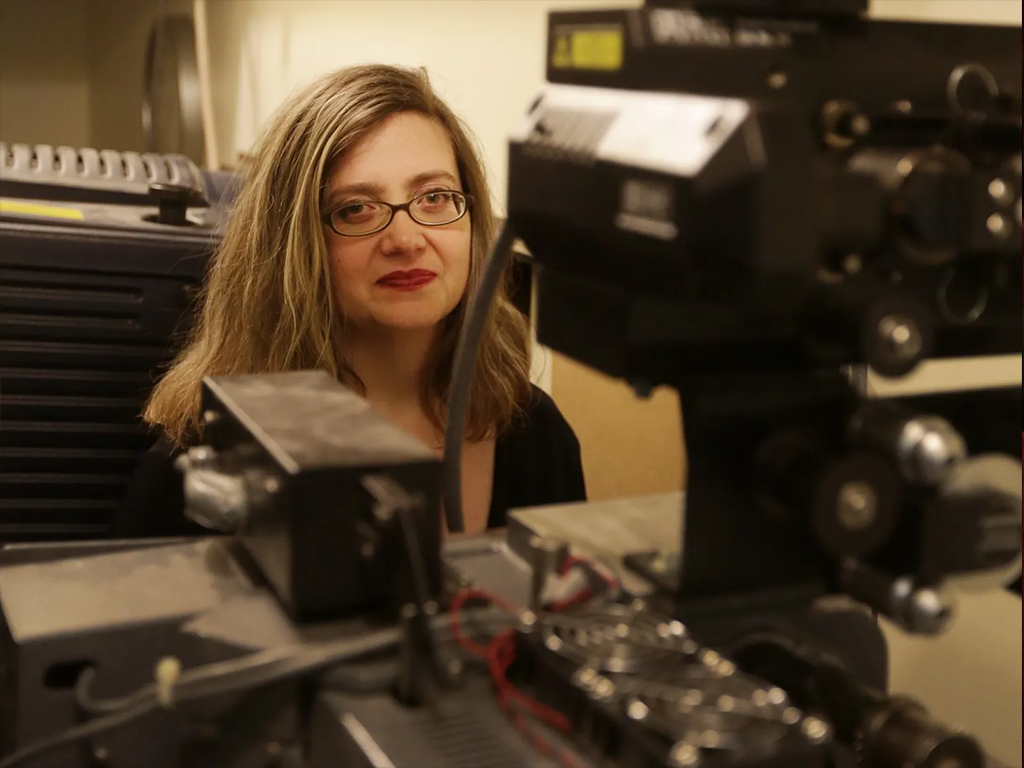On a rainy day in November, I put on my favorite oversized sweater and drove to Cinema Detroit for the Mabel Normand screening from the "Pioneers: First Women Filmmakers" series. For those unfamiliar, Normand was a funny, hardworking badass who got her start in the early 1910s with filmmakers like D.W. Griffith and Mack Sennett. She worked primarily as an actress but also directed, produced, and wrote her own material (typically without credit because the patriarchy is no joke).
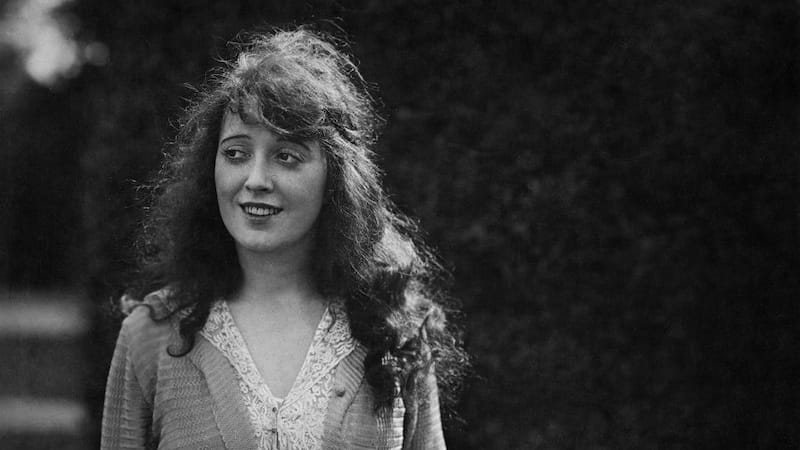
Her films aren't exactly easy to find, and I was thrilled to watch them on the big screen with a pocketful of Sour Patch Kids. Cinema Detroit makes a concerted effort to highlight women like Normand and other marginalized figures in film. I've admired their programming since I moved to Michigan, so I finally reached out to pay them my compliments. Paula Guthat, one of the co-owners (along with her husband, Tim), got back to me and we set up an interview after the Normand screening. We sat in the cozy theater lobby and talked about women in film, cats (we both have three 🐈), and what it's like to run an indie theater.
Interview with Paula Guthat
Woman in Revolt: The first two "Pioneers" screenings focused on Alice Guy-Blaché. Did you have good turnout for those? I'm sure silent cinema is always kind of tough.
Paula Guthat: We brought in around 40 people with the two screenings together, which is pretty good. We're definitely still building our silent film attendance. It's something we're starting to focus on more, especially with the live music accompaniment. It's essential to see silent films how they were meant to be seen: on a big screen, with some type of live music. Sometimes it was just an organ, sometimes a small orchestra, but there would have always been some type of music or sound effects. Silent films were never meant to be completely silent, just without dialogue.
Even though I love going to the theater, I still end up watching most movies on my laptop. For silent film especially, this completely alters the experience and makes it worse.
It's definitely not the same! I screened the movies for the "Pioneers" series on my laptop before I programmed them, which was tough. There were probably about 70 available for me to choose from via the distributor, Kino Lorber, and it's hard to tell what works when viewing them that way. When I watch them on the big screen, it's a totally different experience; all attention is directed to what's on screen.
That's why I think it's so important that we have festivals and screenings with underrepresented voices, people who aren't in the Hollywood mainstream ... from indie film down to local filmmakers. Having something up on the screen is an indication that you and your work matter.
Do people still come to the theater to watch smaller movies, lesser-known movies?
Oh yeah, we wouldn't be here if they weren't! We have a good mix of regular and new customers. Curation is definitely important. There are hundreds of streaming services showing thousands of movies and it's hard to even know where to begin. Independent art houses like Cinema Detroit highlight films in a way that no one else can. Sometimes Netflix will release a movie at midnight, and it will come and go. That's not what we do.
There's this movie screening in December called "Burning" (Chang-dong, 2018). It's the South Korean entry for best foreign picture for this year's Academy Awards. No one else in the Metro Detroit area will be showing it. It's an extraordinary picture and seeing it in theaters helps draw attention to it in a way that wouldn't happen if it was only streaming.
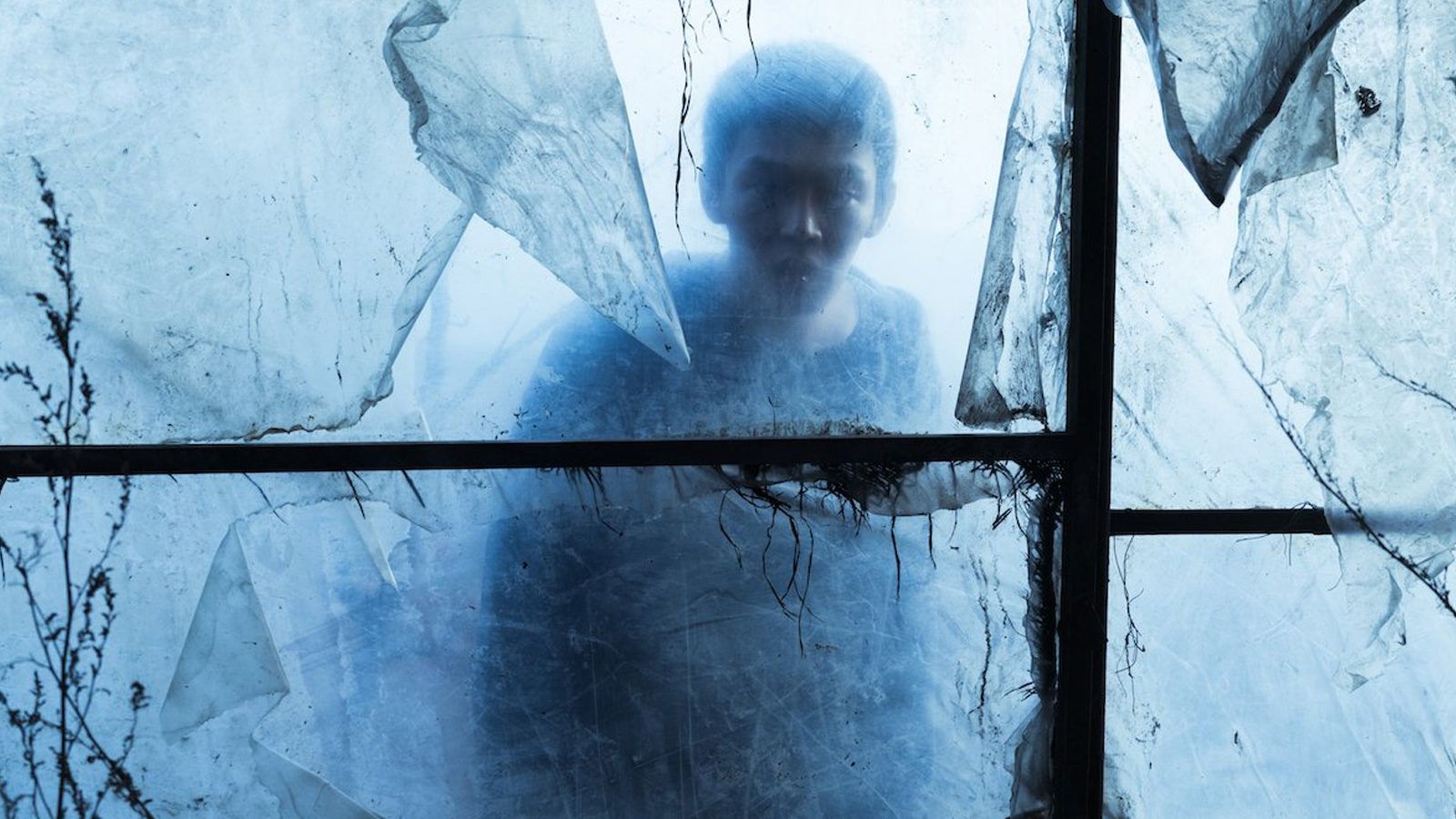
That makes me think of Dee Rees's "Mudbound" (2017). Netflix botched the marketing, and it didn't get as much attention as it should have.
I really wanted to show that movie, but it wasn't possible. I don't want to make this all about Netflix, but they don't respond to emails or think they need us. By "us" I mean movie theaters in general, art houses in particular. It's frustrating but at the same time, there's a lot of other content that is just as engaging and important.
You and Tim do a good job of fostering a community of passionate filmgoers. People who attend screenings here are definitely in search of something that Netflix can't provide.
Cinema Detroit is the only 7-day per week movie theater in greater downtown and the only truly independent movie theater in the metro Detroit area. By "independent" I mean that we don't have another supporting organization. We're not attached to any other cultural entity or part of a chain; it's just us. We're a 501(c)(3) and we go out of our way to be a community neighborhood cinema. I try to respond to the market, to show local films, to foster discussions by having talkbacks and panels with local organizations. I really want people to see that movies make a difference because I firmly believe that they do.
We had our five-year anniversary in October. It's our third year in this space (at 4126 3rd Ave), which we feel is more like a house than a cinema. It's like we're inviting people over to our home to watch movies, have food, and talk about movements, films, ideas, and history.
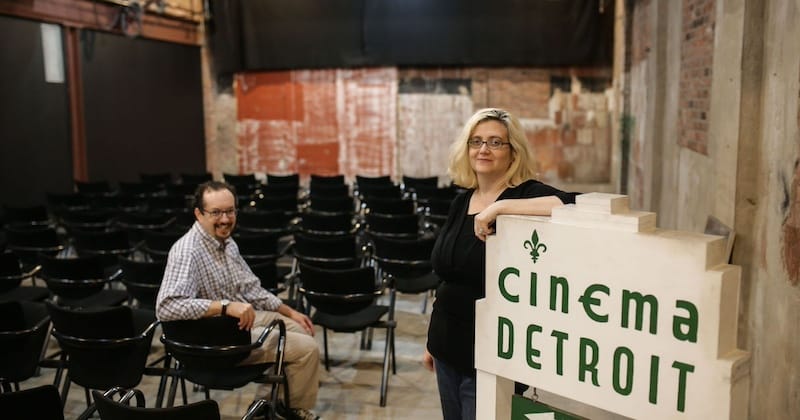
Have you ever watched "Gilmore Girls?"
No, I haven't.
There's a place in Stars Hollow called the Black-White-Read Bookstore that also doubles as a movie theater at night. Cinema Detroit totally reminds me of it.
Hah! I hope that's a good thing. I mostly watch films for work, sometimes up to five per week, and I don't watch much television. If I'm not watching something for Cinema Detroit, it's probably a film on TCM.
I watch way more TV than I should and am always binging something. I find that episodes and shows start to run together if I don't space them out enough.
Film festivals are notorious for that type of fatigue. You can watch 4-5 films per day and at the end it's hard to distinguish them.
Were you sad about FilmStruck?
I was sad because I had friends who were sad. I kind of thought that a revival was likely, though. It was so important to so many people. I think it actually helps us, too. If someone is exposed to a film via a platform like FilmStruck, it opens up the doors for us to show it on the big screen or make new recommendations. If someone subscribes to FilmStruck/Criterion, they're probably also going to be interested in what Cinema Detroit screens. Those are our people.
How do you find partners for screenings like "Pioneers?" The series was sponsored by the Cinema Studies program at Oakland University, the Detroit Shetown Film Festival, and Final Girls.
This is the first series we've done with sponsors. One of the professors at OU Cinema Studies is a friend-of-a-friend. Detroit Shetown Film Festival is a really great, female-centric film festival where everything is written, directed, or produced by women. Final Girls is a female filmmaking collective that used to have meetings here before they got too large for the space. I reached out and got all of them onboard.
In the wake of #MeToo and #TimesUp, it seemed like the right moment for this type of series. It's imperative for people to learn about these female pioneers. As a jumping off point, I always use the USC Annenberg Inclusion report. In the most recent one, they looked at the top 100 grossing films from each year over the last eleven years (2007-2017). It was quite depressing... women only directed 4.3% of them.
100 years ago, roughly when the films in the "Pioneers" series were made, this wasn't the case. I would say that number was closer to 50%, maybe higher. A lot of women were working as uncredited scenarists, aka writers. They were also producers, directors, and editors. Think about Mabel Normand. If something needed to be done, she did it. It's important for people to know that it wasn't always like it is now.
I know there's room for improvement, but I do try to book at least 40% of films on the regular slate that are produced, directed, or written by women.
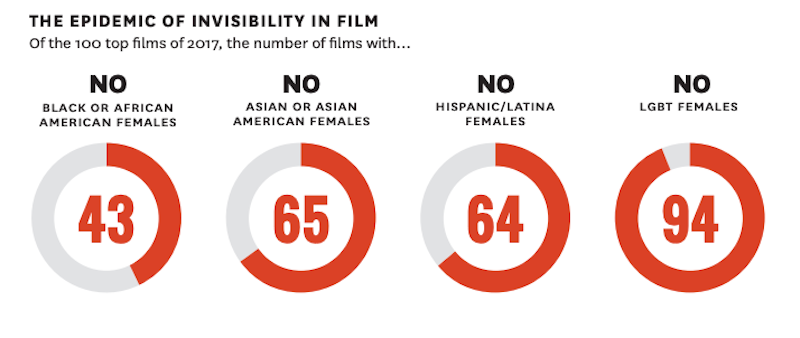
When I was in school studying film, I don't remember watching anything directed by a woman. All of the early pioneers that I was exposed to were men.
And it's just not accurate in the case of the early pioneers. After the talkies came in, a few women lingered on, then you had Ida Lupino (bless her heart) in the 40s and 50s. Then there really wasn't anyone of that prominence until the 70s/80s. Unless you have a really progressive instructor who wants to make women part of the conversation, they're largely ignored. For the present to change, we need to look at the past.
There are so many movies directed by women that I totally missed out on because the overwhelming critical response was negative. There are some movies, like "Jennifer's Body" (Kusama, 2009), that many male critics just didn't understand. This is why it's so imperative for women to not only make films, but write about them, too.
I think we're seeing that right now with "Widows" (McQueen, 2018). I haven't had a chance yet to look at reviews, but I feel like there are certain things about it that men aren't going to understand.
I'm lucky to have some control over what we show - that's what great about being independent. As a woman who owns, operates, projects, and programs my own cinema, I'm in the minority. I'd be lying if I said that this position didn't come with some issues. There was one time when a photographer came to take some pictures and immediately addressed all of his questions to my husband, like I wasn't even standing there. That's just one example, but it's indicative of what typically happens. People assume that my husband does everything and I'm just the supportive wife.
It's funny how you internalize society's picture of you. It's something I constantly have to fight.
I've talked to many directors for WiR who have expressed similar sentiments. I think it's often hard for women to move past their initial roles and try something different when the cards are stacked against them and broader support is nonexistent.
We need to break the cycle. Strides are being made, but we need to keep on it. It's important for other women to share their struggles and show those in similar positions that it is possible to move forward, to make changes. It's helpful to see what someone else's trajectory looks like.
For sure! It's so nice to talk to like-minded people who can give advice and lend support. Sometimes I need a reminder that those people exist.
There have been some women on the exhibition side that have helped me tremendously. I don't want to say that I was naive, but there were a lot of things I didn't know when we first started showing movies. We didn't realize how complicated it all was.
How did you decide to open your own cinema?
I was in Providence, Rhode Island back in 2011 and visited the Cable Car Cinema. Sadly, it's out of business now, but it was a cinema in a converted cable car garage.
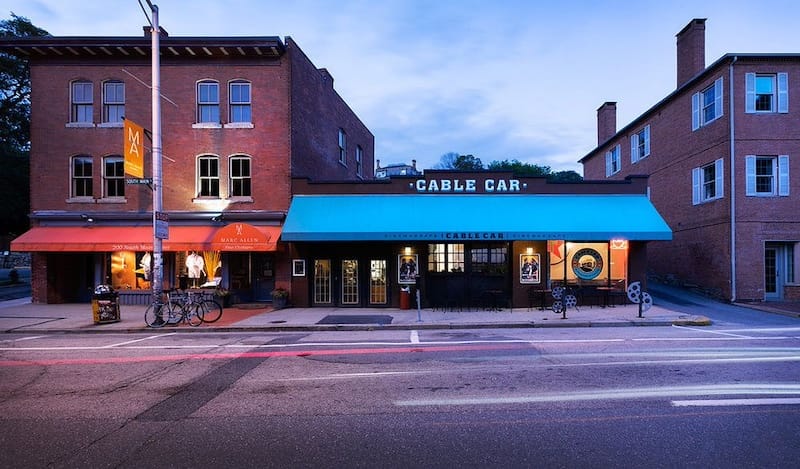
At that time in Detroit, there were a lot of empty buildings, so I thought it would be pretty easy to find and convert a spot like they had done. Meanwhile, it really wasn't [laughs]. We looked around for a long time, but most places didn't have the two things that you really need: ceiling height of at least 14 feet and no load-bearing columns every 10 feet. It took a while to find the right space.
We finally found one that had been a previous theater operation, so we were able to rent both the space and equipment.
Where was that first location?
It was over in the former Burton International School. That space was compromised in a lot of ways. Everything was split up by flights of stairs, so it wasn't accessible. It was exhausting to run and in really bad shape. Plaster was falling off the walls, water would come in when it rained. We really had no control over anything. We couldn't upgrade the equipment or have a sign outside because the landlord wouldn't allow it. After our 2-year lease was up, we found 4126. This building was actually built in 1895 and is older than the first one.
What did it used to be?
It was the Weber Furniture Store. Mr. Weber's granddaughter was here on Christmas of 2015 and told us about the building's history. There used to be a tunnel (since filled in) that went from this building to their house on Alexandrine Street. They could get to work without going outside, which sounds like a nice perk.
This place is in really great shape and feels very homey to us.
Before you started Cinema Detroit, did you and your husband have completely different, unrelated jobs?
My husband was a teacher, I was an art director and graphic designer. I worked in the marketing department and basically did everything but coding for the University of Detroit Mercy.
I also have a movie blog called Paula's Cinema Club (not updated as much these days) and run a live tweet of Turner Classic Movies, TCM Party. I've always been obsessed with film and involved in some capacity. I pretty much knew that I wanted to run my own cinema since I was 16 years old. I come from a movie family and have always loved old movies. I think it was kind of destiny.
What was the first movie you saw that really got you into movies?
There are 2. At about 5 years old, I watched "The Best Years of Our Lives" (Wyler, 1946) on TV. I remember thinking that it was real, which is strange because it's a black and white movie. That movie is a heavy trip for a kid. One guy loses his hands in the war, another guy has a mean wife. It's on TCM pretty much every month.
The other movie is "Gone with the Wind" (Fleming, 1939), which I know is many people's entrée to film. The first contemporary movie is probably "Star Wars" (Lucas, 1977). I like other things (I sometimes blog about music), but film is my passion.
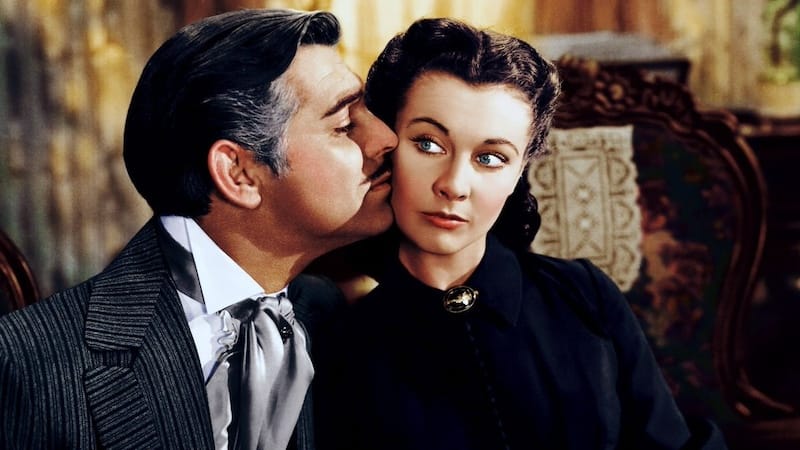
Before streaming was a thing, my husband and I would hear about a really cool indie movie and would go online to find out where it was playing. Spoiler alert: it was never playing here. We live on the east side, so having to drive the whole way out to The Main or The Maple isn't always feasible. Some movies would screen in like... New York, Los Angeles, San Francisco, Chicago, Austin, and then this is what really ticked us off... Columbus, Cincinnati. Like are you kidding me?
Running an indie cinema is harder than it looks, which is probably why we're still the only ones in the game.
Putting myself in your shoes, I'm trying to think about how programming decisions are made. Do you try to find films that people want to see and that you'll feel good showing? How do you hit that sweet spot?
It's a combination, for sure. I very quickly learned that you can't just treat it like your living room where you screen everything that interests you personally. One of the genres that does very well here is horror. I'm not a natural horror fan, but I have a growing appreciation for it. When I started, any horror film I booked was just one that I thought people would like, seemed interesting, or featured up-and-coming talent... it wasn't because I had a pre-existing appreciation for it.
Aside from horror, are there any other genres that do particularly well for your typical demographic? Is there even a typical demographic for Cinema Detroit?
Not really. Our demographic is anybody that lives in the metro area. There is one segment that we really don't serve very well and that's kids. Some of our movies are accidentally okay for them, but it's not an intentional goal. The first rated R movie we showed here was "The Hateful Eight" (Tarantino, 2015) and some people brought their kids to it. Some people bring their kids to "Rocky Horror" (Sharman, 1975). If the parents are cool with it, fine. For whatever reason, children's programming just isn't a focus for us. I would love to do another dog screening... we did one for "Isle of Dogs" (Anderson, 2018) and it was really fun. I'm always on the hunt for good dog movies.
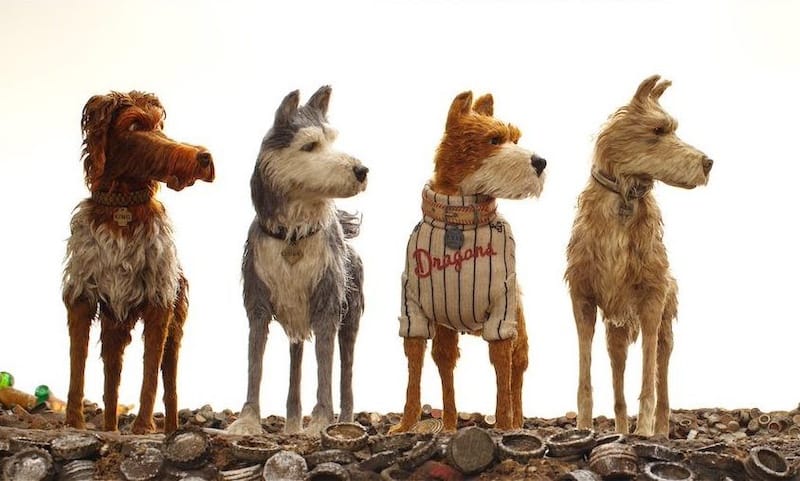
Do you have a dog?
We did, but she passed away about six years ago, just before we started thinking about Cinema Detroit. I would love to have a mellow theater dog, but it's a lot of work and I don't want to be unfair. I would love to have a cat cafe, too. We have three cats at home.
I have three, too! I would have ten if my husband would let me.
We just found out that we're both allergic. We went to visit family without cats and noticed that neither of us were coughing or dealing with runny noses. I noted it, but then just moved on with my day because there's no way I'm not having a cat.
I would rather die than live without a cat. I am not being hyperbolic.
Going into Oscar season, I'm wondering how many of those films Cinema Detroit shows. I know you mentioned "Burning," but will you screen any others?
Whenever I can get them, yes. We only have two screens, so sometimes it's tough. We've been pretty lucky and able to get most of them either before or after they get nominated. "Moonlight" (Jenkins, 2016) was a huge hit before it got nominated, then I think we brought it back after. I feel like we showed that film for about 10 weeks.
I saw it here. I can't remember if it was before or after the Oscar nomination, though.
We could have easily showed that one for longer, but there was another booking that I had already confirmed. Somebody asked me what movies from now are going to be classics and I immediately said "Moonlight." There are other ones, of course, but that's the first one that came to mind. It is so mesmerizingly beautiful and had such a message.

It's a tender, wonderful movie. The type that makes you feel everything all at once.
Have you seen any other films recently that blew you away?
"We the Animals" (Zagar, 2018), which just got nominated for a bunch of Indie Spirits. It's about three brothers growing up poor... their parents kind of have a rocky relationship. It's probably one of the most beautiful films I've ever seen.
I really liked "I Am Not a Witch" (Nyoni, 2017). I felt like the ribbons made the invisible visible... the limits placed upon women.
"Lady Bird" (Gerwig, 2017), too. I know it's kind of a cliché, but every time I see it I end up bawling. The scene where she gets back together with her best friend!
I cried three times during "Lady Bird." I fucking love that movie.
It's just about everyday life, but that's the power of it. And now Greta Gerwig is remaking "Little Women." I can't wait to see what she does with that. It's kind of like when I heard about "Suspiria" (Guadagnino, 2018). I was like, "Oh, this is so unnecessary," and then I saw it and realized how wrong I was. I do wish Gerwig was doing this short story of Louisa May Alcott's instead, though. She wrote a lot of pulp fiction to pay the bills and one of the stories I love most is called "Behind the Mask" (1866). I really want someone to adapt that for the screen.
"Mandy" (Cosmatos, 2018) is another film that had a big impression on me. That one is definitely available on streaming platforms. It's this wild horror film that was out for a short period earlier in the year.
I haven't seen that, but I kind of love everything that Nicholas Cage does, so...
Me too!
How do you feel about all of the men in the industry who have done fucked up stuff and are finally sort of getting their comeuppance?
What I can't stand is how some of those sleazeballs are trying to work their way back in... like Louis C.K.
Then we're forced to have all of these conversations that are like, "What can Louis C.K. do to redeem himself? How can Woody Allen make things right?"
Go away and never come back - that's what you can do. We don't show Woody's films anymore. To be honest, it's not like we're missing anything. The last really great one was "Blue Jasmine" (2013). Or maybe the one with Joaquin Phoenix, "Irrational Man" (2015). I think people are just done with him.
Don't get me wrong, I love a lot of his early movies, but I'll never see them again because they're forever tainted by his creepy, pedo sex crimes.
That's always the question. When people say or do stupid or incredibly horrible things, where does it leave you with their art? If you once found value in it, does that disappear when the artist fucks up? When my copy of "Love and Death" (1975) wears out, can I not buy another one? It's a really funny movie!
I struggle the most with Roman Polanski. I will forever love "Rosemary's Baby" (1968) and "Repulsion" (1965).
Those two films have been so influential. So many body horror films give a hat tip to "Repulsion." Do we just ignore those big chunks of film history? When I think about film programming, it's typically not a hard "no" for controversial figures, but sometimes a "yes AND."
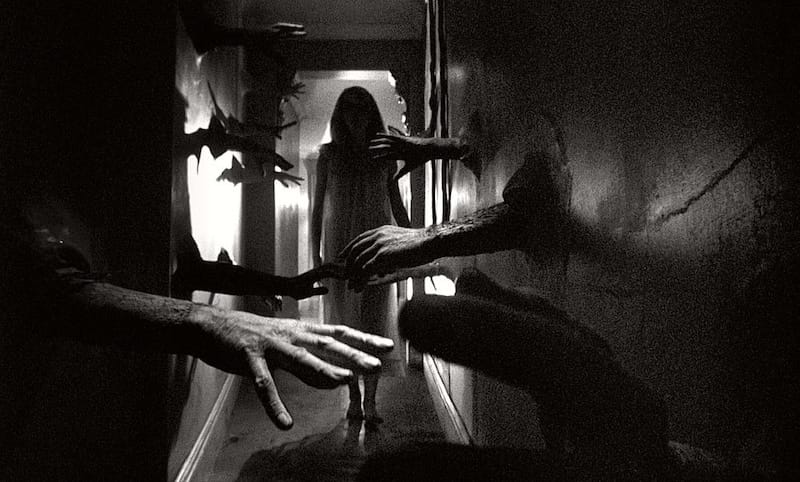
I always think about whether problematic personal issues make their way into the art. With Woody Allen, the answer is "yes" most of the time. What's really horrifying is how much we don't know about... we weren't looking at this behavior with a fine-tooth comb even like, 20 years ago. So many of my idols are probably shit bags.
I don't even want to think about what it looks like in the classic movie fandom. I'm sure some people were fine, but... who knows.
That reminds me... what films do you recommend for someone just getting into classic cinema? I've seen all of the big ones — "Casablanca" (Curtiz, 1942), "Citizen Kane" (Welles, 1941), "All About Eve" (Mankiewicz, 1950) — but I know I'm missing out on a ton.
Just off the top of my head? Start with "Out of the Past" (Tourneur, 1947), "Random Harvest" (LeRoy, 1942), and "The More the Merrier" (Stevens, 1943). Those three should be enough to get you hooked.
Thanks to Paula for meeting up with me and then waiting for 2 months while I took forever to put this interview together. Cinema Detroit is one of my all-time favorites and if I lived just a little bit closer, I would definitely be a regular patron. It has a magical, spooky energy that reminds me of sneaking out of bed as a kid to watch black and white horror films on the Sci-Fi channel. If you're ever in Detroit, check a movie and then stop at the Sugar House for a cocktail.
Here are a few other film recommendations from Paula:
- "Grace Jones: Bloodlight and Bami" by Sophie Fiennes (2018) - streaming on Amazon, iTunes, etc.
- "The Misandrists" by Bruce LaBruce (2017)
- "The Judge" by Erika Cohn (2017) - streaming on Amazon

